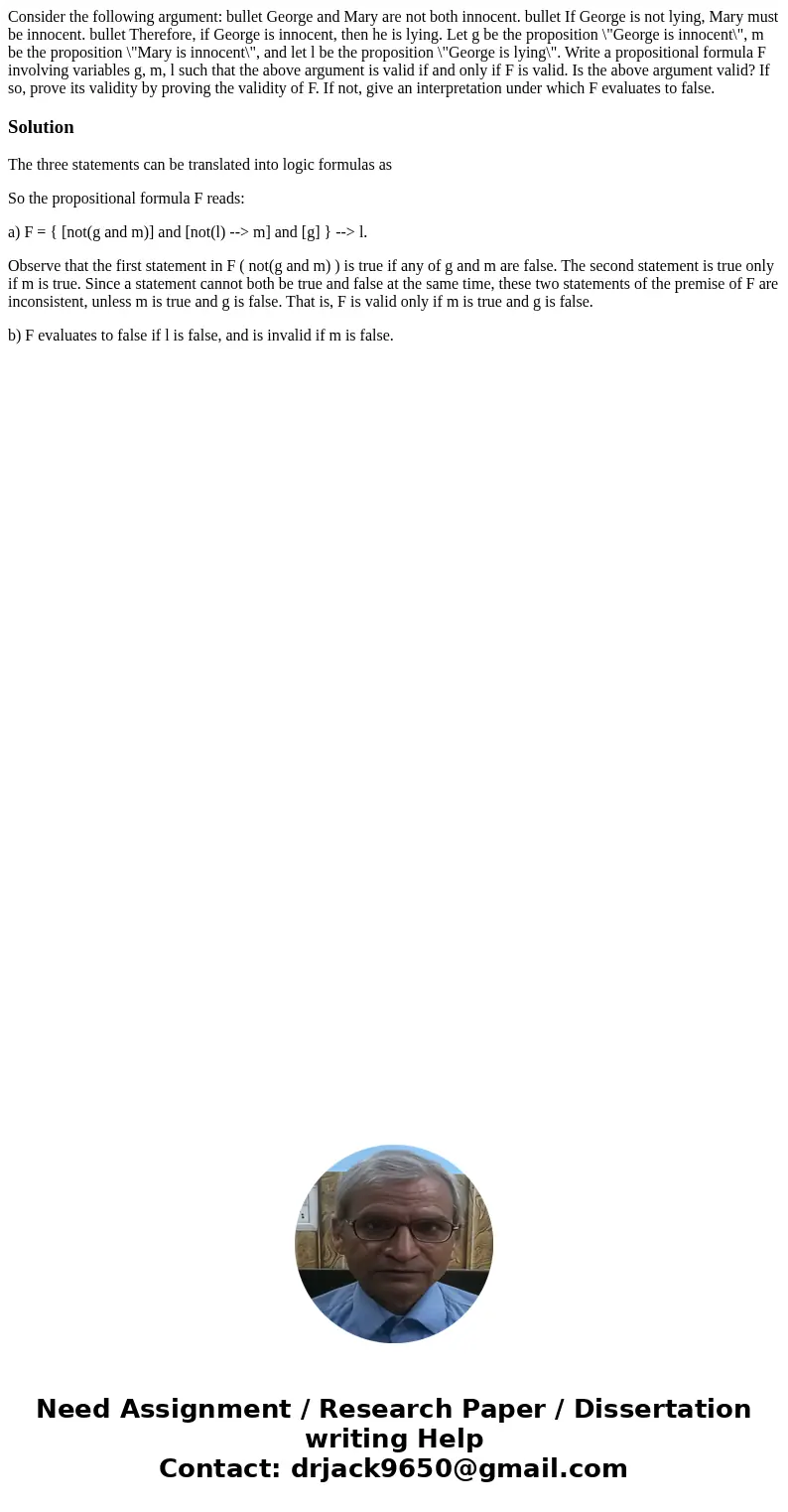Consider the following argument bullet George and Mary are n
Consider the following argument: bullet George and Mary are not both innocent. bullet If George is not lying, Mary must be innocent. bullet Therefore, if George is innocent, then he is lying. Let g be the proposition \"George is innocent\", m be the proposition \"Mary is innocent\", and let l be the proposition \"George is lying\". Write a propositional formula F involving variables g, m, l such that the above argument is valid if and only if F is valid. Is the above argument valid? If so, prove its validity by proving the validity of F. If not, give an interpretation under which F evaluates to false.
Solution
The three statements can be translated into logic formulas as
So the propositional formula F reads:
a) F = { [not(g and m)] and [not(l) --> m] and [g] } --> l.
Observe that the first statement in F ( not(g and m) ) is true if any of g and m are false. The second statement is true only if m is true. Since a statement cannot both be true and false at the same time, these two statements of the premise of F are inconsistent, unless m is true and g is false. That is, F is valid only if m is true and g is false.
b) F evaluates to false if l is false, and is invalid if m is false.

 Homework Sourse
Homework Sourse